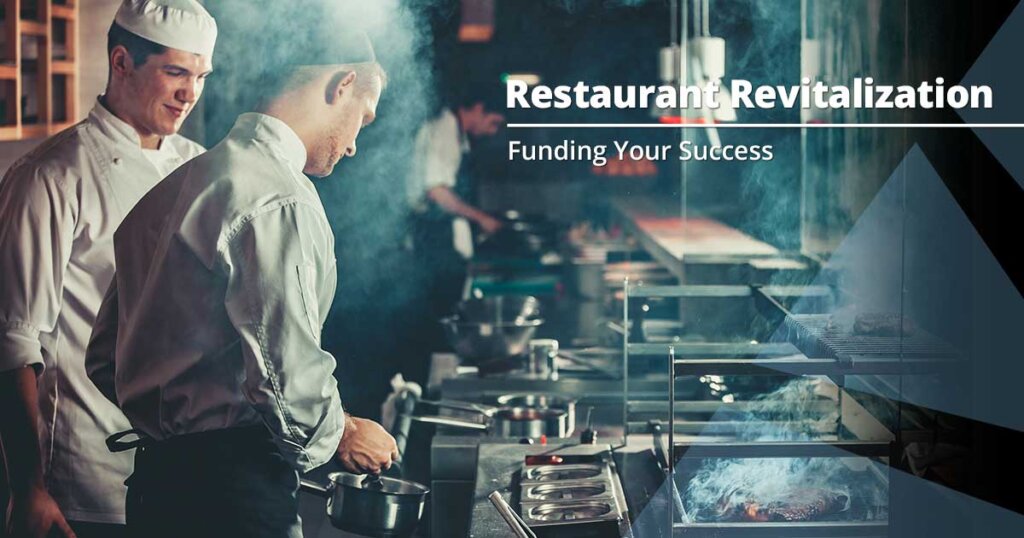Restaurant Revitalization Fund Details
 When the American Rescue Plan Act of 2021 was signed into law, it didn’t just provide a round of stimulus checks to the nation’s citizens. It also included a vital line item that has many restaurant owners breathing a big sigh of relief. The Restaurant Revitalization Fund is a restaurant industry-focused grant program that set aside $28.6 billion to assist the restaurants impacted by the COVID-19 pandemic. Here are the details we know so far about eligibility and when this grant will be available.
When the American Rescue Plan Act of 2021 was signed into law, it didn’t just provide a round of stimulus checks to the nation’s citizens. It also included a vital line item that has many restaurant owners breathing a big sigh of relief. The Restaurant Revitalization Fund is a restaurant industry-focused grant program that set aside $28.6 billion to assist the restaurants impacted by the COVID-19 pandemic. Here are the details we know so far about eligibility and when this grant will be available.
Who Qualifies?
This grant program is specifically for privately-owned restaurants that were established prior to March 13, 2020. The entity must own and operate 20 or fewer establishments to qualify. Individual restaurants can receive to up $5 million. Restaurant groups with 20 or fewer locations may qualify for up to $10 million in grants.
How Much Will You Qualify For?
The main goal of the Restaurant Revitalization Fund is to restore the lost revenues restaurants encountered during mandatory closures and stay-at-home orders due to the COVID-19 pandemic. That being said, the grant amount you will receive is calculated as follows:
• 2019 revenue minus 2020 revenue for restaurants established prior to 2019
• For restaurants that opened in 2019, they will average 2019 monthly revenues then multiply by 12, minus 2020 revenues.
• If your restaurant opened in 2020, your grant amount will be equal to eligible expenses minus your gross receipts received.
Eligible Expenses
The eligible expenses listed by the SBA to be included are:
• Payroll (excluding employee compensation exceeding $100,000 per year), paid sick leave
• Principal or interest on mortgage obligations; rent; utilities; maintenance including construction to accommodate outdoor seating
• Supplies such as protective equipment and cleaning materials
• Normal food and beverage inventory; certain covered supplier costs
• Operational expenses; and any other expenses that the SBA determines to be essential to maintaining operations.
Eligible expenses must be incurred from 2/15/20 through 12/31/21. Funds must be spent on qualified expenses before the covered period ends. If the business permanently closes or grant funds aren’t spent by end of the period, the business must return their funds to the Treasury.
Special Reserves/Prioritization
• $5 billion of the $28.6 billion is reserved for restaurants with less than $500,000 in gross receipts in 2019 for the first 60 days of the program.
• The SBA will also be prioritizing grants for restaurants that are owned and controlled by women, veterans, or socially and economically disadvantaged small business concerns for the initial 21-day period of the program.
Restaurant owners can apply for a Restaurant Revitalization Grant through the SBA site, SBA.org. The program isn’t currently open (March 17th, 2021), but they are expected to begin taking applications within a few weeks of the passage of the program. If you are in need of funds while waiting for this to open, we’re here for you. We have a wide variety of loan products available that will give you the perfect bridge option to continue on while you wait for your grant. You can see how much you qualify for by completing our online application. After submitting, one of our loan consultants will be in contact with you to go over your approval to help you find the best loan for your restaurant’s needs.
ARF Financial provides articles, webinars and other content on its website and through email and other means of distribution from time to time provided both by ARF staff, and by other outside authors, for information purposes only. ARF does not warrant the accuracy or completeness of the content and has no duty to correct or update information contained on its website or as may be otherwise distributed. The views and opinions of outside authors contained in the content provided on the ARF website do not constitute the views and opinion of ARF. Such content does not constitute legal, tax, accounting or financial advice from such authors or from ARF. Each individual or business should seek the advice or consultation of its own professional advisors with respect to the subject matter and content provided and how such information applies to their particular circumstances.

